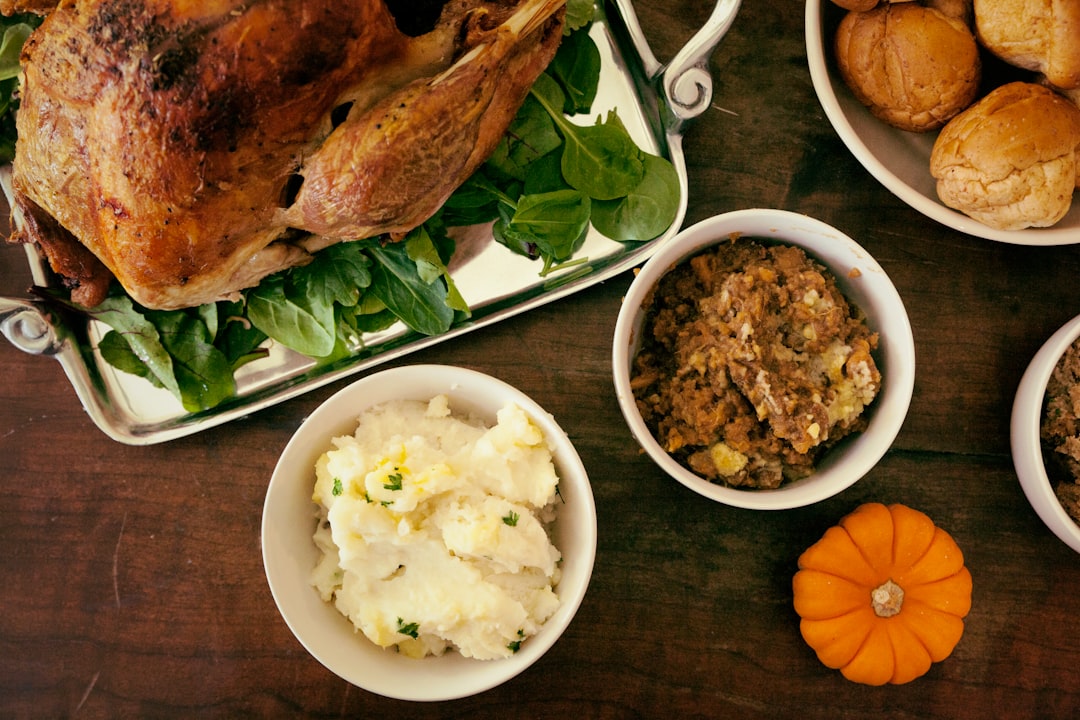Turkey Talk: Does Tryptophan Really Make You Sleepy?
Understanding Post-Meal Drowsiness and Its Causes
Have you ever wondered why you feel so sleepy after a Thanksgiving dinner? The common belief is that turkey is to blame, but the reality is more nuanced. Turkey contains tryptophan, an essential amino acid that contributes to the production of serotonin and melatonin—key regulators of mood and sleep [1]. However, turkey’s tryptophan levels are comparable to those in chicken and beef, and are significantly lower than in cheeses like cheddar and parmesan [2].
In truth, post-meal drowsiness is more influenced by the overall content of the meal, which often includes high levels of carbohydrates and fats, rather than turkey alone. The myth that turkey is solely responsible for sleepiness is widespread, yet scientific evidence suggests other factors play a larger role. Many people report feeling tired after large meals due to the combination of food types consumed and the body’s natural physiological response to digestion.
The Role of Tryptophan in Sleepiness
Tryptophan is indeed linked to sleepiness, but the amount found in turkey is not sufficient to induce drowsiness on its own. A typical dose of tryptophan for inducing sleep is around 4-5 grams, while a serving of turkey provides only about 410 milligrams. Foods like cheese, chicken, and nuts also contain tryptophan but do not commonly lead to sleepiness, highlighting the myth around turkey.
Tryptophan competes with other amino acids to cross the blood-brain barrier, meaning a high-protein meal can dilute its effects. However, carbohydrates increase the insulin response, which lowers competing amino acids in the blood, allowing tryptophan to have a greater influence on sleepiness. Therefore, it’s the combination of turkey with carbohydrate-rich foods that enhances the feeling of sleepiness.
Carbohydrates and Sleep Science
Carbohydrate-rich foods are known to increase insulin levels, facilitating more tryptophan to enter the brain, thereby enhancing sleepiness [1]. During a typical Thanksgiving feast, the high carbohydrate intake spikes blood sugar, leading to fatigue and reduced alertness. The digestion process further diverts blood to the digestive system, reducing cerebral blood flow and causing drowsiness.
Foods high in sugar can lead to a rapid spike in blood glucose followed by a crash, resulting in increased feelings of tiredness. Pairing turkey with starchy side dishes like mashed potatoes or stuffing amplifies the overall drowsiness effect.
 Additional Factors Contributing to Post-Meal Fatigue
Additional Factors Contributing to Post-Meal Fatigue
Alcohol consumption is another factor that contributes to post-meal sleepiness. It can enhance sedative effects and promote muscle relaxation, increasing the feeling of sleepiness [2]. Overeating stretches the intestines and activates the parasympathetic nervous system, inducing a “rest and digest” state.
Additionally, lack of prior sleep and seasonal changes, such as earlier darkness in fall, naturally increase melatonin production. The combination of rich foods and alcohol can also lead to dehydration, further contributing to feelings of tiredness. Emotional factors, such as holiday stress and relaxation, can also play a role in how we feel after a large meal.
 The Science of Digestion and Blood Flow
The Science of Digestion and Blood Flow
Large meals, particularly those high in fats and proteins, require significant energy for digestion, diverting blood from the brain. This diversion leads to a decrease in alertness and an increase in feelings of tiredness post-meal. The body’s natural circadian rhythms can also be affected by heavy meals, aligning more with rest periods.
Digestive hormones, such as cholecystokinin, are released after eating and can promote feelings of fullness and fatigue. The body’s metabolic response to digesting a large meal increases heart rate and energy expenditure, which can lead to a post-meal slump.
Strategies for Managing Sleepiness
To combat the inevitable post-meal slump, consider opting for a 20-minute power nap to refresh without disrupting your nighttime sleep patterns. Engaging in light physical activities, such as a family walk, can aid digestion and boost energy levels. Staying hydrated by alternating between water and festive drinks can help mitigate fatigue.
Consuming smaller portions throughout the day can help maintain energy levels and prevent overwhelming fatigue after meals. Incorporating high-protein snacks prior to the main meal can provide sustained energy and minimize blood sugar spikes.
Impact of Seasonal Changes on Sleep Patterns
The shift to shorter days and longer nights in late fall can naturally increase melatonin production, enhancing sleepiness. Seasonal Affective Disorder (SAD) can also contribute to feelings of lethargy during the holiday season. Adjusting to these changes involves maintaining regular sleep schedules and incorporating light exposure during the day.
The body’s response to colder temperatures can lead to a desire to seek warmth and comfort, often resulting in increased sleepiness. Increased indoor activities during colder months may lead to less physical activity, contributing to an overall sense of fatigue.
 Tips for a More Energized Thanksgiving
Tips for a More Energized Thanksgiving
Practicing mindful portion control can help avoid overeating and subsequent lethargy. Prioritizing a calming bedtime routine signals your body to wind down effectively. Incorporating a balanced diet with a focus on moderation can prevent the post-meal slump. Encourage family and guests to participate in pre-meal or post-meal activities that promote movement and engagement.
Consider planning meals that include lighter dishes alongside traditional heavy ones to balance indulgence with energy maintenance.
Conclusion: Embrace Mindfulness for Better Holiday Experiences
By understanding the science behind post-meal drowsiness, you can better manage holiday fatigue. Embrace mindful eating and light activity to enhance your Thanksgiving experience without excessive sleepiness. For more health tips and emergency care services, visit El Paso Emergency Room’s website at https://www.eper.com/.


